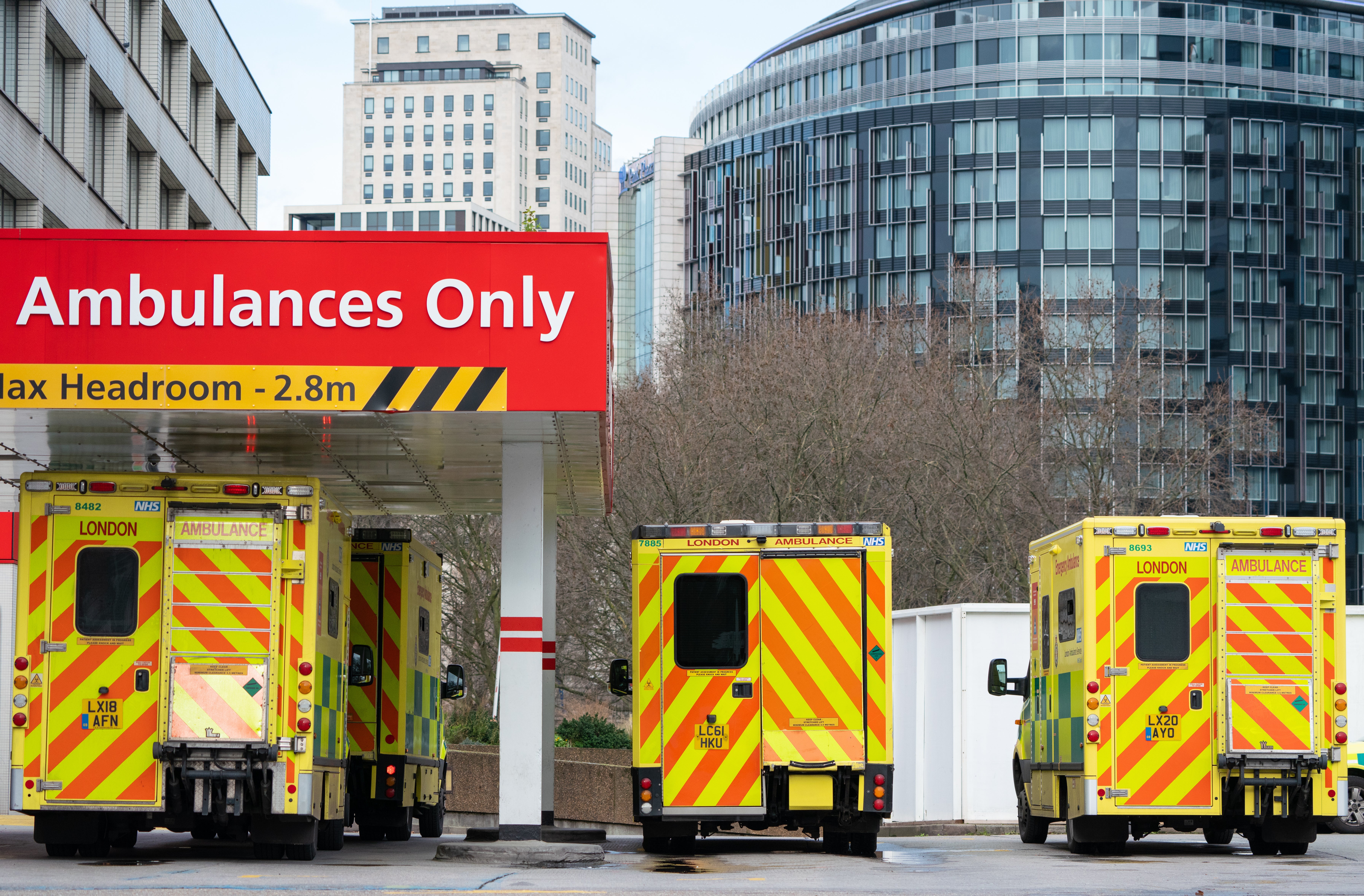One in 10 ambulance patients ‘waiting more than an hour’ for A&E handover
Nearly a quarter of patients were kept waiting at least 30 minutes.

Your support helps us to tell the story
From reproductive rights to climate change to Big Tech, The Independent is on the ground when the story is developing. Whether it's investigating the financials of Elon Musk's pro-Trump PAC or producing our latest documentary, 'The A Word', which shines a light on the American women fighting for reproductive rights, we know how important it is to parse out the facts from the messaging.
At such a critical moment in US history, we need reporters on the ground. Your donation allows us to keep sending journalists to speak to both sides of the story.
The Independent is trusted by Americans across the entire political spectrum. And unlike many other quality news outlets, we choose not to lock Americans out of our reporting and analysis with paywalls. We believe quality journalism should be available to everyone, paid for by those who can afford it.
Your support makes all the difference.One in 10 patients arriving by ambulance at hospitals in England last week waited more than an hour to be handed over to A&E departments, new figures show.
Some 8,211 delays of more than 60 minutes were recorded across all acute trusts in the seven days to December 5, according to NHS England.
This was 10% of the 83,903 arrivals by ambulance.
A further 11,155 patients (13%) waited between 30 and 60 minutes to be handed over from ambulance teams to A&E staff.
This means nearly a quarter (23%) of all arrivals were kept waiting at least half-an-hour.
A handover delay does not always mean a patient has waited in the ambulance. They may have been moved into an A&E department, but staff were not available to complete the handover.
But the figures give a snapshot of the pressure hospitals in England are facing heading into the Christmas period.
It is the first weekly update on ambulance delays to be published this winter.
Analysis of the figures by the PA news agency showed that University Hospitals Bristol & Weston Foundation Trust reported the highest number of delays of more than 60 minutes (353), followed by University Hospitals Birmingham Foundation Trust (322) and University Hospitals of Leicester Trust (317).
University Hospitals Birmingham topped the list for delays of at least 30 minutes (812), followed by University Hospitals of North Midlands Trust (559) and University Hospitals of Leicester (490).
The 8,211 delays of more than 60 minutes in the week to December 5 was more than three times the number for the equivalent week last year (to December 6 2020).
Just 3% of arrivals in that week had to wait more than 60 minutes for a handover, compared with 10% this year.
And 11% of arrivals had to wait at least 30 minutes, compared with 23% this year.
The figures also show that out of 129 acute trusts who had patients in critical care every day last week, five trusts had no spare beds.
Homerton University Hospital, George Eliot Hospital, Sandwell & West Birmingham Hospitals, Portsmouth Hospitals University and the Royal United Hospitals Bath reported 100% occupancy of all “open” beds each day from November 29 to December 5.
The number of A&E diverts last week – when an ambulance is temporarily diverted to another hospital – was 25.
There were 11 diverts by University Hospitals Sussex trust, five by South Tyneside & Sunderland; five by Worcestershire three by University Hospitals Birmingham and one by Rotherham.